“We Were So Hungry, We Ate Our Fear”
The Uncertain Consequences of Cuba’s Protests
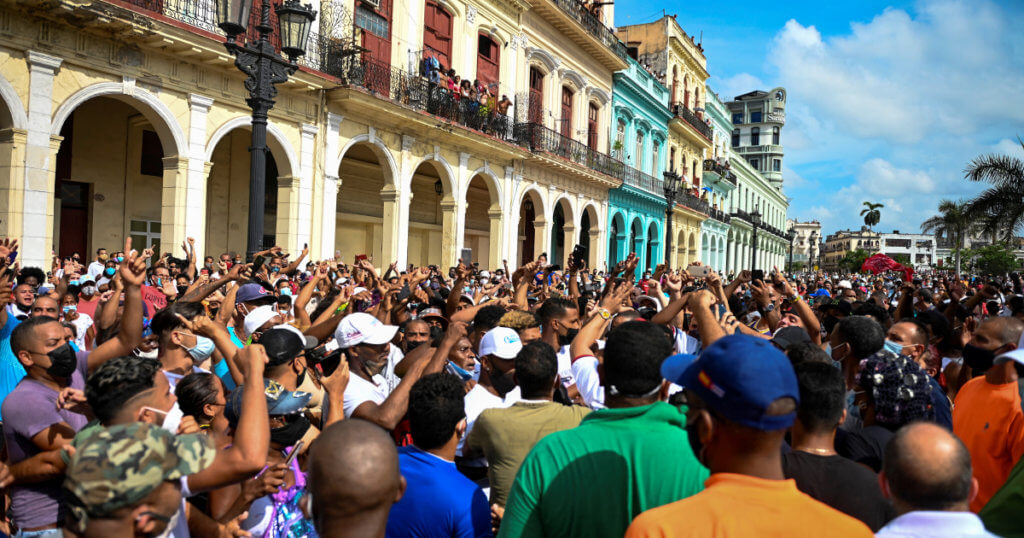
People take part in a demonstration against the government of Cuban President Miguel Diaz-Canel in Havana, on July 11, 2021. – Thousands of Cubans took part in rare protests Sunday against the communist government, marching through a town chanting “Down with the dictatorship” and “We want liberty.” (Photo by YAMIL LAGE / AFP)
On Sunday July 11, in the town of San Antonio De Las Banos on the outskirts of Havana, historic protests erupted against the Cuban government. In the following days the protests spread to 40 cities and 22 smaller towns throughout the country, with protestors chanting ‘freedom’ and ‘down with the dictatorship’. The protests were fueled by anger over medicine, food and gas shortages, the Cuban government’s handling of the COVID-19 crisis, and a broader frustration with the status quo of repression and lack of freedom of expression.
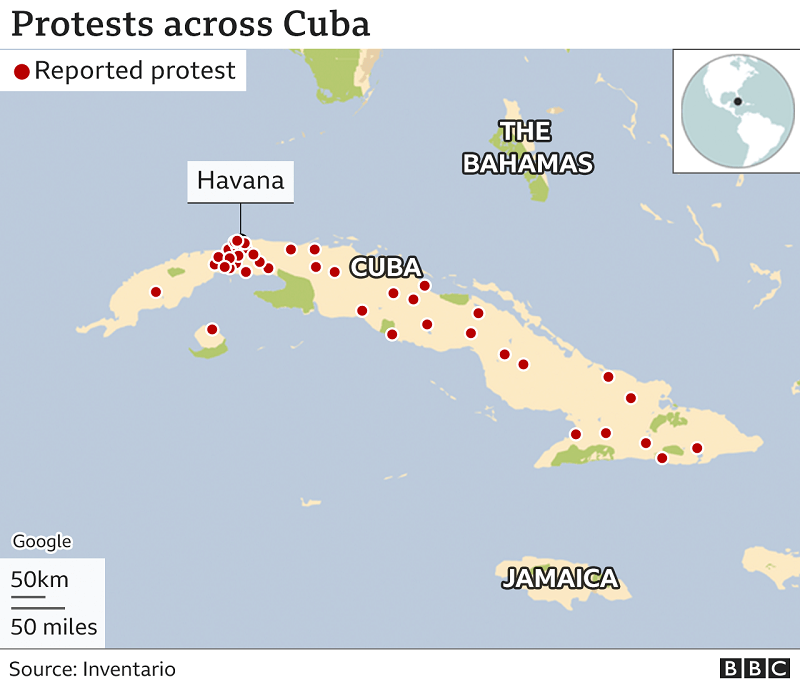 The grassroots organizers used social media to spontaneously mobilize the public countrywide. Videos quickly spread of protestors flipping over police cars, looting stores and throwing rocks, all capturing international attention. An anonymous protestor in San Antonio stated, ’We are not afraid. We want change, we do not want dictatorship anymore’. The Cuban government responded in kind: ’The order to fight has been given–into the street revolutionaries!’ declared President Miguel Diez-Canal as he dispatched his military machine.
The grassroots organizers used social media to spontaneously mobilize the public countrywide. Videos quickly spread of protestors flipping over police cars, looting stores and throwing rocks, all capturing international attention. An anonymous protestor in San Antonio stated, ’We are not afraid. We want change, we do not want dictatorship anymore’. The Cuban government responded in kind: ’The order to fight has been given–into the street revolutionaries!’ declared President Miguel Diez-Canal as he dispatched his military machine.
Numerous factors are responsible for the timing and size of the protests. In 2020, the Covid-19 pandemic caused a sharp economic contraction as tourism and sugar production—the two main engines of the economy—collapsed, resulting in lack of foreign currency to pay debt and import basic goods and services. This has had a profound impact on the economic and social life of the people on the island.
As protestors bravely were standing in the streets withstanding rubber bullets, tear gas, beatings, and the threats of arrest, there were shouts calling for “Freedom!” and “Liberty and Life!” from among the crowds. Whether Cuba will endure a similar fate as Venezuela and Nicaragua with a shaken, but enduring communist regime, or whether this protest is a trigger of a broader movement, is uncertain. What is certain is that, not since Castro’s revolution 62 years ago, has the Cuban government faced such a grave threat to its existence.♦
Excerpts from @The Oxford Student
Pandemic versus Prayer Revival. Report by a Friend from Cuba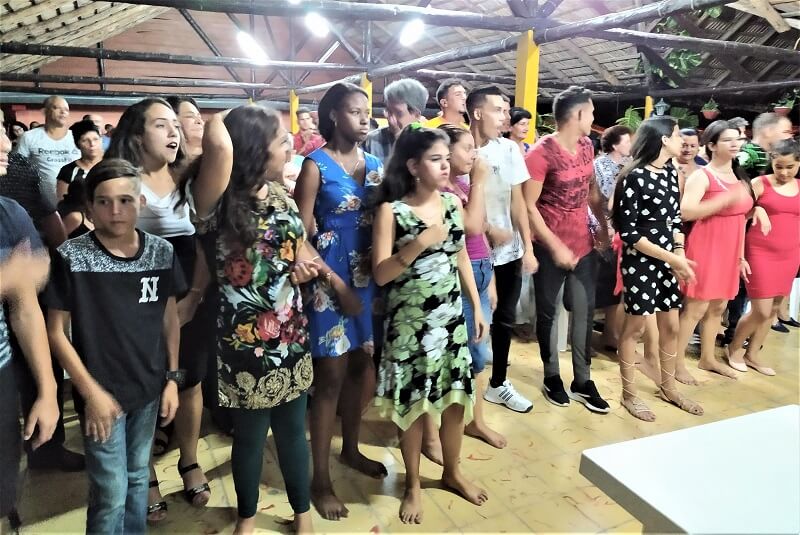
After more than sixty years of devastating Marxist Socialist/Communist dictatorship, the island of Cuba is experiencing one of the most horrible moments in modern history.
Day by day, in the midst of the massive human suffering, it is the power of the Church—κοινωνία, the Fellowship of Believers which is sustaining the Cuban people. Like the salt of the earth and light of the world, as described by Jesus in Matthew 5:13-16, it is bringing hope to our island, which was described by its great admirer, Christopher Columbus as, “more beautiful than human eyes have ever seen.”
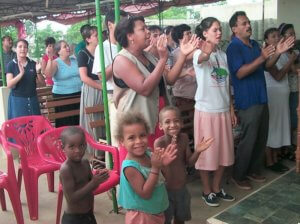 During the last eight months all church buildings have been closed. The pandemic has put the authorities on high alert as lack of proper food and vitamins are causing thousands and thousands to be infected with Covid-19 and hundreds are dying daily. The Church has risen to the occasion, being the only voice and messenger of hope of life for the nation of Cuba. With the disadvantage of having all church gatherings shut down, the Pastors and church leadership in Cuba have turned that into an advantage—using their creativity and innovation. They have invaded social platforms like Telegram, WhatsApp, etc. with a clear message: calling believers to prayer and fasting.
During the last eight months all church buildings have been closed. The pandemic has put the authorities on high alert as lack of proper food and vitamins are causing thousands and thousands to be infected with Covid-19 and hundreds are dying daily. The Church has risen to the occasion, being the only voice and messenger of hope of life for the nation of Cuba. With the disadvantage of having all church gatherings shut down, the Pastors and church leadership in Cuba have turned that into an advantage—using their creativity and innovation. They have invaded social platforms like Telegram, WhatsApp, etc. with a clear message: calling believers to prayer and fasting.
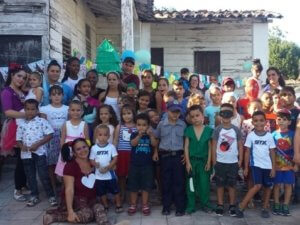 I know Pastors who have created groups on Telegram where they preach to 50 people or more at a time and record these messages. Then, everybody in the group distributes them to others who have prayer requests and are seeking to know the Living Jesus Christ, the Hope of Glory! One Pastor started preaching his sermons to a group of 10 on social media, which has now increased to 150 followers. Each of them downloads and resends these messages to hundreds more who are interested in the Living Word of God.
I know Pastors who have created groups on Telegram where they preach to 50 people or more at a time and record these messages. Then, everybody in the group distributes them to others who have prayer requests and are seeking to know the Living Jesus Christ, the Hope of Glory! One Pastor started preaching his sermons to a group of 10 on social media, which has now increased to 150 followers. Each of them downloads and resends these messages to hundreds more who are interested in the Living Word of God.
From R.K’s Corner
 It is almost unimaginable that only 90 miles from the shores of Miami, one of the wealthiest coastlines in the United States, perhaps even the world, there is an island with a population of a little more than 11 million people who, except for a very wealthy governing elite, live in abject poverty. For 62 years, Cuba has been controlled by a ruthless Marxist dictatorship which has oppressed, repressed, and suppressed their people’s lives and liberty. On July 11, the people of Cuba shook off their fear of reprisals, took to the streets where they openly protested against tyranny and demanded freedom and liberty. The world is taking notice!
It is almost unimaginable that only 90 miles from the shores of Miami, one of the wealthiest coastlines in the United States, perhaps even the world, there is an island with a population of a little more than 11 million people who, except for a very wealthy governing elite, live in abject poverty. For 62 years, Cuba has been controlled by a ruthless Marxist dictatorship which has oppressed, repressed, and suppressed their people’s lives and liberty. On July 11, the people of Cuba shook off their fear of reprisals, took to the streets where they openly protested against tyranny and demanded freedom and liberty. The world is taking notice!
A more quiet, less visible, yet profound and more lasting transformation has also been taking place in Cuba. During the Covid-19 restrictions with church buildings and public gatherings on lockdown, the Christians in Cuba, as in many other oppressive nations, have risen to the occasion. They have formed nationwide networks between churches and fellowships online, as well as physically in small groups. Individual believers fearlessly and courageously come together to pray and intercede for each other and their nation. There is a prayer revival emerging in Cuba! They work together in finding and sharing resources with each other and the most needy in their communities with love, prayer for the hungry, the lost, the hopeless and lonely, the sick and dying as they present the Gospel by sharing testimonies of faith, and teaching them the Word of God
In this issue, I present a brief background on the unprecedented July protests. The centerfold contains a report by a dear Cuban friend who is well connected with the Body of Christ in his country. Please pray for Cuba’s liberation and freedom, both spiritually and physically!
